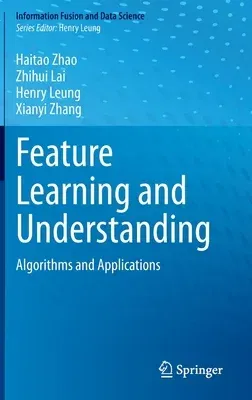Haitao Zhao
(Author)Feature Learning and Understanding: Algorithms and Applications (2020)Hardcover - 2020, 4 April 2020

Qty
1
Turbo
Ships in 2 - 3 days
In Stock
Free Delivery
Cash on Delivery
15 Days
Free Returns
Secure Checkout

Part of Series
Information Fusion and Data Science
Print Length
291 pages
Language
English
Publisher
Springer
Date Published
4 Apr 2020
ISBN-10
3030407934
ISBN-13
9783030407933
Description
Product Details
Book Edition:
2020
Book Format:
Hardcover
Country of Origin:
NL
Date Published:
4 April 2020
Dimensions:
23.39 x
15.6 x
1.91 cm
ISBN-10:
3030407934
ISBN-13:
9783030407933
Language:
English
Location:
Cham
Pages:
291
Publisher:
Weight:
607.81 gm